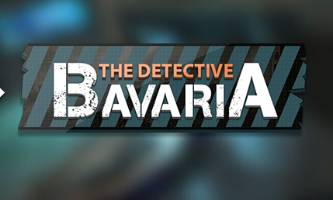Summary
This lesson address the components of evidence used to support hypotheses. It addresses qualitative versus quantitative, as well as primary versus secondary. This would be a good lesson to start the year and requires no prerequisite skills. This lesson includes optional modifications for distance learning. Resources for use in Google Classroom are included.
Essential Question(s)
How can evidence be evaluated and used?
Snapshot
Engage
Students gauge their abilities about data analysis before the lesson.
Explore
Students play the game The Detective: Bavaria.
Explain
Students complete a honeycomb relatedness based on the academic language from the game.
Extend
Students identify different data sources and how the student will use them in lab handouts.
Evaluate
Students reevaluate their abilities about data analysis.
Materials
Chromebooks or enough computers with internet access for every student
Copies of the Honeycomb sort (cut out before the lesson)
Copies of lab handouts
Sticky notes
Engage
Pass out a sticky note to every student. Have students evaluate the statement "I feel like I can do a good job of evaluating evidence and drawing conclusions" using a Sticky Bar strategy. Students should write their name and how much they agree with the statement on the sticky note, using a scale from 1–5 (1 = highly disagree and 5 = highly agree). Have students hang on to their number, since they'll revisit it in the Evaluate portion of the lesson.
Explore
Pass out Chromebooks or any other way for students to get on a computer with internet access.
Direct students to the K20 Game Bavaria.
Explain
Extend
Keep students in their groups, and pass out one of the lab handouts provided in the attachments to each group. Keep in mind, there are many labs you can provide, and only three have been given in this lesson for the sake of keeping the lesson file small.
In the groups, have students create two Justified Lists, one for quantitative and one for qualitative data. The students will read through the lab handout, and determine what kind of data they are collecting in that particular lab, and why they know it is either quantitative or qualitative. When they are done, have groups share out what they've written.
Evaluate
Tell the students to look back on the number they assigned themselves for the statement "I feel like I can do a good job of evaluating evidence and drawing conclusions." Prompt students to think about how they'd rank themselves now, and why. Have students write, as an Exit Ticket, what they changed their number to and why. Encourage them to use as many words from the lesson as possible, and not just talk about personal feelings.
Resources
Honeycomb Harvest (Explain): https://learn.k20center.ou.edu/strategy/6f19b778b73e4c339d1a7d9653001825
Sticky Bar (Engage): https://learn.k20center.ou.edu/strategy/d9908066f654727934df7bf4f505ee0f
Exit Ticket (Evaluate): https://learn.k20center.ou.edu/strategy/d9908066f654727934df7bf4f505d6f2
Justified List (Extend): https://learn.k20center.ou.edu/strategy/d9908066f654727934df7bf4f5074d76
K20 Center Bavaria Game (Explore): https://k20center.ou.edu/games/detective-bavaria/


